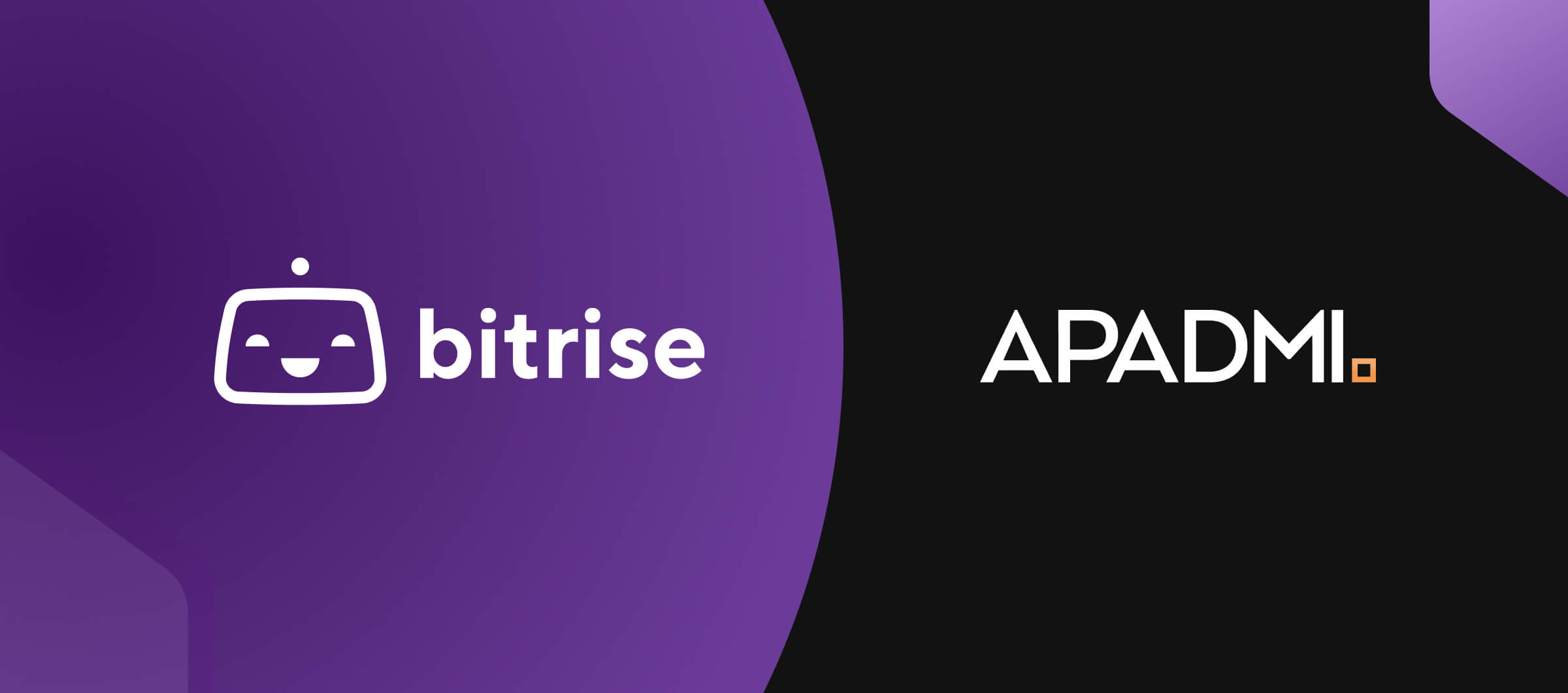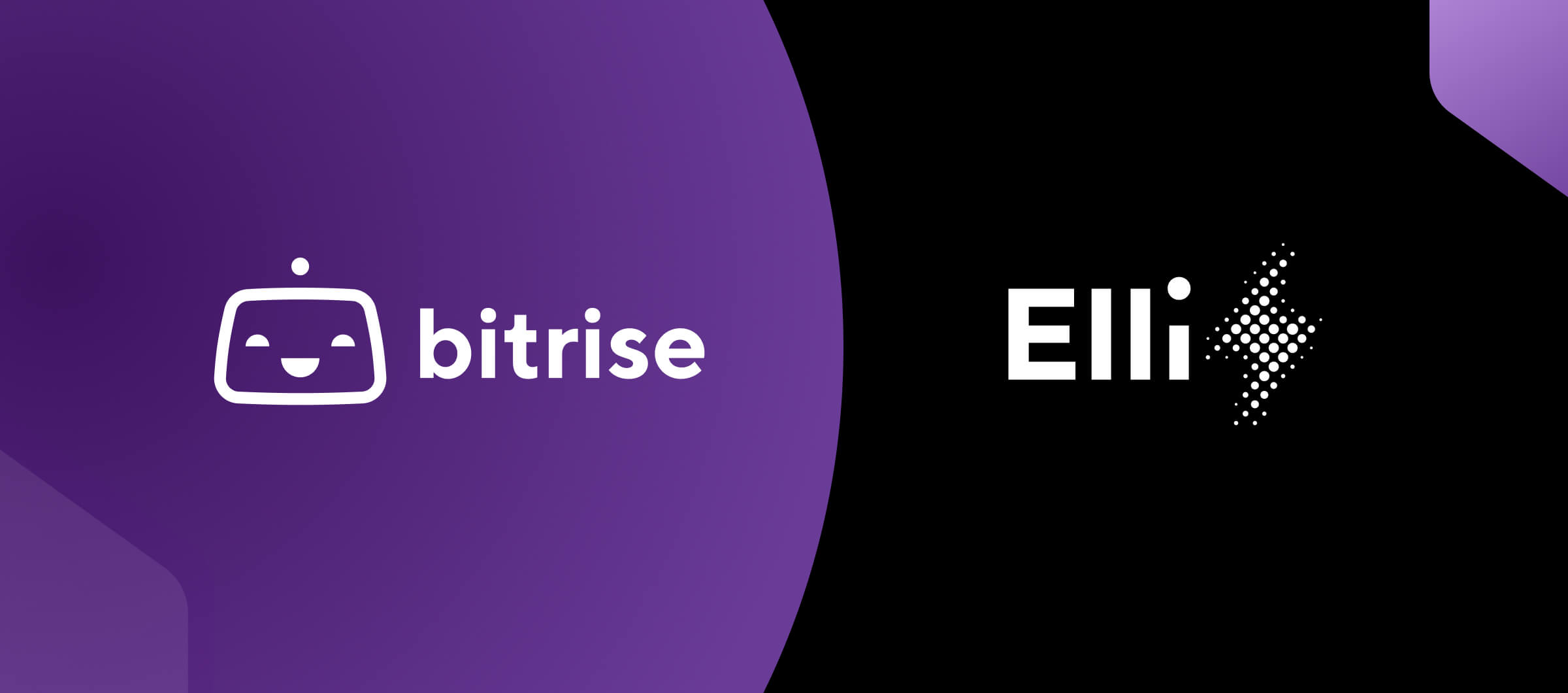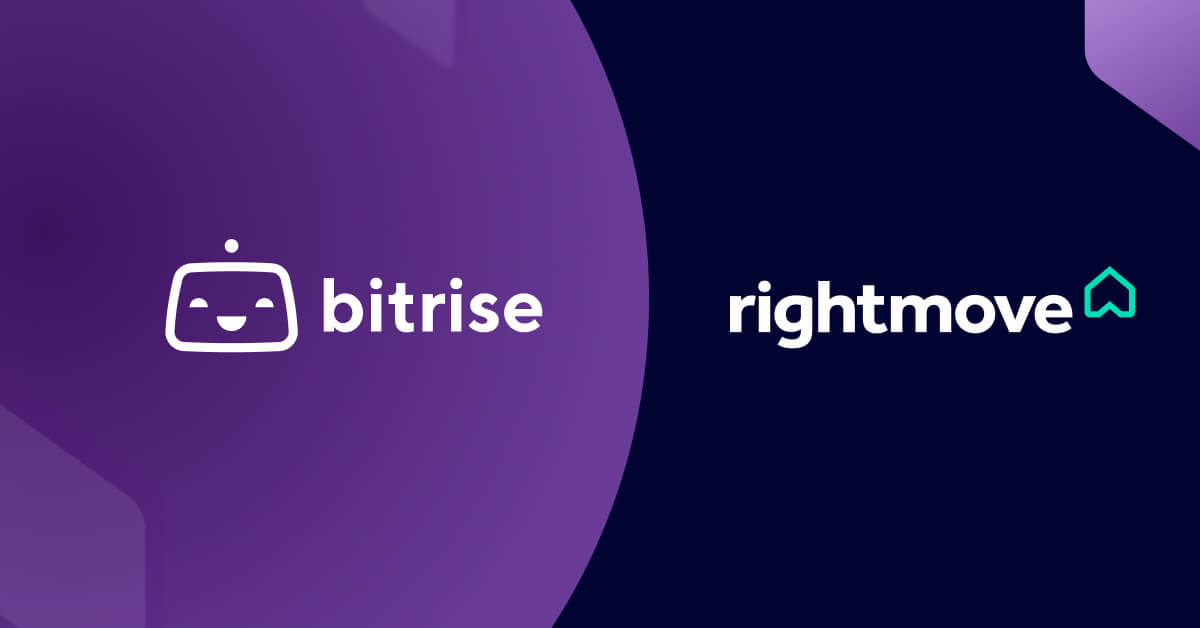As consumer expectations rise, loyalty is becoming a top priority. In fact 67% of brands plan to significantly increase investment in strengthening consumer loyalty over the next year, according to a recent report by Apadmi, Europe’s leading digital product consultancy and longstanding Bitrise customer.
Apadmi’s mission is to empower major brands like Asda, BBC, NHS, Domino’s, and the Co-op to build stronger connections with customers through the right blend of technology and mobile expertise. Central to achieving that is having a robust, reliable CI/CD foundation, powered by Bitrise.
Nine years into their Bitrise journey, we sat down with Apadmi’s CTO Gary Butcher and Engineering Manager Daniel Tanner-Davies to hear how Bitrise supports their growth, why loyalty is now top of mind for their clients, and how a stable pipeline is helping them scale across Europe and beyond.
Q. You’ve been a Bitrise customer for nine years, how’s it helping your teams today?
[Gary Butcher] We focus on helping clients build best-in-class digital products, and to do that, we need best-in-class tooling. That’s why we choose tools we enjoy working with and that come highly recommended. It reduces the risk and helps our teams move faster. That’s our baseline.
Sometimes clients want to bring CI/CD in-house, but they quickly realise how complex mobile can be. It’s a totally different beast. That’s why we always recommend Bitrise. We have a lot of confidence in Bitrise, it’s never let us down, it’s fantastic.
We’re always looking for ways to improve what we offer, so having a reliable setup like Bitrise where any of our tech leads can jump in, review workflows, use APIs, and flag outdated stacks, is a massive help. Not having to rebuild things or start from scratch each time saves us so much effort. Bitrise gives us that.
Q. Are you planning to expand Bitrise to more teams?
[Gary Butcher] Definitely. We’ve more than doubled in size in the past few years, from 150 to over 400, and that growth is set to continue. We’re also expanding across Europe through acquisition, and we’d like to see Bitrise rolled out across every group we bring on.
Q. Do most of your clients use Bitrise?
[Daniel Tanner-Davies] Yes, the vast majority do. The only caveat to that is sometimes a client wants us to use their own infrastructure, which we’ll work with, but in most cases, Bitrise is our preferred solution.
[Gary Butcher] A big thing for us is that a lot of clients come looking for accelerators—they don’t want to start from scratch. Typically, everything we build is bespoke, so we’re not offering a cookie-cutter or licensed product.
What we do have is a lot of tooling and scripting built up over time. For example, in quality control and release management, the team has created tools we can easily plug into workflows, like generating release notes based on Jira tickets in a certain state.
That kind of thing shows a real focus on quality. And when you’ve got a consistent tooling setup, I can go into a pre-sales conversation and say, “Here’s what you’re going to get—this is the baseline.” Because it’s automated, that standard is something we can guarantee.
Wherever we can automate, we do. Manual workflows and workarounds are a nightmare for maintenance.
Q. How is Bitrise helping your teams?
[Gary Butcher] We have hundreds of updates and dependencies to stay on top of each year, OS updates, toolchain changes, build step tweaks. It’s a job in itself.
With Bitrise, we’ve got one place where we can audit all of that. That kind of consistency and visibility is huge for us. Reinventing the wheel doesn’t add value. Our clients expect us to deliver quickly and confidently, not spend four sprints figuring out how to set up tooling. With Bitrise we can get clients up and running immediately.
[Daniel Tanner-Davies] We do a lot of lift-and-shift across projects, so reusability is key. We’re not big fans of manual drag and drop workflows. And so we use Fastlane heavily within Bitrise because it makes it so much easier to reuse it across projects. It also allows us to run workflows locally. Anything that helps us avoid reinventing the wheel and lets our clients push ahead is a big win.
Q. Loyalty’s becoming a major focus in mobile, what’s your take on that?
[Gary Butcher] Loyalty and mobile are becoming synonymous. It’s interesting to see how, pretty much everywhere you go, there’s a loyalty play. A lot of that is driven by the value exchange—“I’m willing to download an app, give you some personal details, and show you who I am, if I get something back.”
We’ve carved out a niche helping clients accelerate and grow that as an offering. Loyalty is in play across almost every sector. It’s a careful balance to get right as the main goal is to expand your market, average basket sizes or repeat interactions—if you only reward already loyal customers, you’ve missed the opportunity.
It’s becoming the number one priority. We have clients putting loyalty and mobile directly into their mission statements. In some cases, bonus structures are tied to the success of loyalty programs. It’s that important. So yes, all eyes are on it.
Q. How does Bitrise support success with loyalty initiatives?
[Daniel Tanner-Davies] Being able to trust that Bitrise will perform when we need it to—and not having to think twice about it—is invaluable as we help clients drive mobile growth and focus on loyalty programs.
[Gary Butcher] Time to market is crucial for our clients. With the rise of tools like Flutter and Kotlin Multiplatform, having a solution like Bitrise that’s at the forefront of innovation, works consistently, and is ready to go with the latest technology is fantastic.
When it comes to loyalty plays, you need to meet customers where they are—and Bitrise helps us do exactly that. We’ve got some good metrics so far on how loyalty is paying off for clients. One of our retail clients has something like a 1:12 ratio. So every pound spent through the app brings back £12. That kind of impact is hard to ignore and would be much lower if we spent time dealing with build issues.
Q. How is Bitrise helping you maintain quality and a great user experience?
[Gary Butcher] Quality can’t be sprinkled on at the end. With Bitrise, we’ve got quality baked into every step. It’s easy to flag outdated stacks, monitor workflows, and ensure we’re always on top of things.
On mobile, you have to be confident in every release. It’s hard to patch something quickly once it’s live. Bitrise helps us run tools like SonarCloud in the workflows, and we can easily layer on whatever else we need.
[Daniel Tanner-Davies] We’ve got dozens of active projects, and Bitrise gives us that consistency across all of them. Gary and I can drop into any one of them and know it’s going to be familiar and follow the same standards.
[Gary Butcher] We’re a metrics-led business. Our teams track sprint velocity, defect rates, and more. If there’s a spike, we can trace it through the tooling and find the root cause. Using the same platform across everything makes that so much easier.
Q. And what about traceability and stability, how important is that for your clients?
[Gary Butcher] It’s critical. Take the NHS—they ran a QA audit on us, and we got a glowing report. The feedback really highlighted that quality is something the whole team owns, from PMs to developers.
We’ve built in safeguards and compliance measures, things like making sure builds go to specific teams for UAT processes. That’s essential when you’re handling solutions that deal in human life, like organ donation. They simply can’t go down.
Even for clients like Domino’s, where it’s “just pizza,” their app processes millions each week. It’s a billion-pound business. Our clients rely on us for stability, and we rely on Bitrise to help us deliver that.
Q. What do you see coming next with mobile, especially with Kotlin and other tech shifts?
[Gary Butcher] We’re seeing more demand for shared business logic between mobile and web. Technologies like Kotlin JS and Wasm are emerging to meet that need, and consistency is going to continue to be really vital.
That’s where Bitrise comes into play again. It’s already ahead of the curve. When we are asked by a client to work with a specific tool, we don’t have to justify more spending to our CFO. With Bitrise, we are ready to go. That level of flexibility and readiness is a huge advantage.
Q. Are you looking into using AI more widely, specifically AI-generated code?
[Gary Butcher] It’s absolutely coming. Our Chief Innovation Officer is always looking at where we can go next. But for us it's not about coding fast, it's about delivering value. The last thing we want to hear from a client is, “That’s not what I thought it would be.” The role of our tech leads, product owners, and project managers is to uncover what the client actually wants and help them achieve it. That’s where we add value, and where we want to focus our time.
AI can help senior engineers write code faster, but it can have a negative impact on juniors. We have a pretty successful grad program. An award-winning one, in fact, that’s bringing more good people into the industry. So it’s an interesting time. We’ll see where things go, but I do think there’s a false economy in just chasing speed.
I always say: you could probably drive a supercar as fast as I can, but you might not be able to stop it. The same applies with AI. I think we’ve all got to be mindful of that. I see real potential for AI in product elicitation, testing, and maintenance. Those are the areas where it can really augment developers. But if you’re just vibe-coding your way through a product, you’re asking for trouble.
Q. If you had to choose the most valuable benefit of Bitrise, what would it be?
[Gary Butcher] Ultimately, it allows us to stop wasting time on stuff that doesn't add value, and focus on what does. For us that means delivery throughput and ROI for our clients. All the good stuff we know makes a difference.
Our clients enjoy working with us. We get great feedback, and we see a lot of repeat business from key stakeholders when they move companies. They come back to Apadmi because they know we get things done. We don’t hang around—we deliver results fast, and that’s what we’re known for. Having Bitrise as a solid, reliable CI/CD foundation plays a huge role in making that possible.
Finally, what’s next for the partnership?
[Gary Butcher] We’d like to work even closer with your team. More deep dives into improving build times and testing even further. We’re also exploring code quality with SonarCloud and strengthening our compliance checks. There’s a lot we’d like to automate further.
As we continue to expand further in Europe and the US market, it is great to have the assurance that Bitrise can scale to meet our needs. We know that if we were to triple the size over the next few years, Bitrise could handle it. It gives us the confidence to focus on growth and keep delivering value for our clients.
Interested in learning more? Check out the full case study with Apadmi here.




